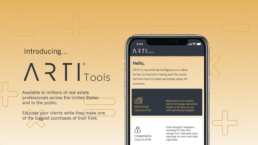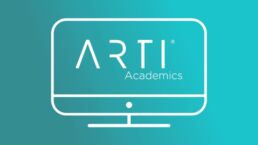Related Community Posts
Real Estate Agent Success Stories in Utah
Success stories in the Utah real estate market highlight the importance of…
Real Estate Agent Technology in Texas
Technology has become an integral part of the real estate industry in Texas,…
Real Estate Agent Continuing Education in Nevada
Continuing education (CE) is vital for real estate agents in Nevada to stay current…
Real Estate Agent Professional Ethics in Utah
Professional ethics are fundamental to a successful real estate career in Utah.…
Real Estate Agent Sales Techniques in Texas
The relationship with the client doesn’t end at the closing table. Following up…
Real Estate Agent Lead Generation in Nevada
Online lead generation techniques have become increasingly important in today’s…
Real Estate Agent Customer Service in Utah
Exceptional customer service is a cornerstone of success for real estate agents in…
Real Estate Agent Business Planning in Texas
Creating a robust business plan is fundamental for real estate agents in Texas…
Real Estate Agent Professional Development in Nevada
Professional development is a cornerstone of success for real estate agents in…
Real Estate Agent Work-Life Balance in Utah
Establishing boundaries is vital for maintaining work-life balance. Agents should…
Real Estate Agent Tools and Resources in Nevada
Real estate agents need a robust set of tools to manage their day-to-day…
Real Estate Agent Career Paths in Utah
Advancing a real estate career involves continuous learning and professional…
Real Estate Agent Success Stories in Texas
Learning from successful agents involves analyzing their strategies, techniques,…
Real Estate Agent Marketing Plans in Nevada
Creating a comprehensive marketing plan is essential for real estate agents in…
Real Estate Property Inspections in Utah
Inspections often reveal issues that need to be addressed. Common problems include…
Real Estate Agent Training Programs in Texas
Comprehensive training programs equip real estate agents with the knowledge and…
Real Estate Market Forecast in Nevada
Accurate market forecasting is crucial for real estate professionals in Nevada to…
Real Estate Agent Branding in Utah
Effective brand marketing strategies help you reach your target audience and build…
Real Estate Investment Analysis in Texas
Analyzing investment opportunities involves evaluating various factors, including…
Real Estate Agent Networking in Nevada
Maintaining a strong network involves regular communication and nurturing…
Real Estate Financing Options in Utah
Understanding the various financing options available in Utah is crucial for…
Real Estate Brokerage Management in Texas
Establishing clear policies and procedures is essential for smooth brokerage…
Real Estate Sales Techniques in Nevada
Creating a well-defined sales strategy is the foundation of successful real estate…
Real Estate Legal Issues in Utah
Real estate agents in Utah have access to various legal resources to help navigate…
Real Estate Agent Continuing Education in Texas
Continuing education offers numerous benefits for real estate agents. It keeps them…
Real Estate Market Analysis in Nevada
Analyzing market trends involves examining key metrics, such as median home prices,…
Real Estate Negotiation Techniques in Utah
Negotiations often involve overcoming obstacles and finding compromises. Common…
Real Estate Licensing Exam Prep in Texas
Embarking on a career in real estate in Texas begins with a crucial step: passing…
Real Estate Marketing Strategies in Nevada
Creating valuable content is essential for engaging potential clients and…
Understanding Real Estate Commissions in Utah
Real estate commissions play a crucial role in transactions, affecting the overall…
Real Estate Investment Properties in Texas
Having a clear exit strategy is vital for any real estate investment. Common exit…
Real Estate Agent Job Search Tips in Nevada
Preparing your resume and cover letter is the first step. A well-crafted resume…
Real Estate Closing Process in Utah
Common closing documents include the settlement statement, deed of trust,…
Real Estate Technology Tools in Texas
Technology has revolutionized the real estate industry, making it more efficient…
Real Estate Networking Tips in Nevada
Building a professional network involves attending industry events, joining real…
Handling Multiple Offers in Utah
Ethical considerations play a significant role in handling multiple offers. Real…
Real Estate Appraisal Basics in Texas
Appraisal reports are detailed documents that outline the appraiser's findings and…
Effective Real Estate Advertising in Nevada
Online advertising platforms play a significant role in modern real estate…
Understanding Zoning Laws in Utah
Zoning laws categorize land into different zones, such as residential, commercial,…
Real Estate Market Trends in Texas
First-time home buyers represent a significant segment of the real estate market in…
Working with First-Time Home Buyers in Nevada
First-time home buyers represent a significant segment of the real estate market in…
Real Estate Investment Strategies in Utah
Real estate investment in Utah offers numerous opportunities for building wealth…
Property Management Basics in Texas
Property management is a multifaceted role that involves overseeing residential,…
Real Estate Ethics and Law in Nevada
The importance of ethics in real estate cannot be overstated. Ethical behavior…
Marketing Your Real Estate Business
Marketing is a critical component of any successful real estate business, no matter…
Understanding Property Taxes in Utah
Property taxes are a crucial aspect of homeownership in Utah. These taxes fund…
Continuing Education Requirements in Nevada
Continuing education is vital for real estate agents in Nevada to stay current with…
How to Get Your Real Estate License for Free in Utah
If you're considering a career in Utah real estate, one of the biggest hurdles can…
Need a Certificate of Completion?
If you need to re-issue a certificate of completion for one of your completed…
How To Sign Up For Test Prep
The ARTI® Academics test prep is a learning tool designed to increase students’…
New Technology From ARTI
Brokers Technology, a leading Proptech company, has recently expanded its real…
Are You Still There
“Are you still there?” Is probably your least favorite question by now. Yeah, it is…
How to View Your Completed Classes
You may have tried to sign up for a certificate or a course and received the error…
The Best Real Estate School in Utah and Nevada Just Got Better
Are you looking for an accredited real estate school in Utah or Nevada? Look no…
Everything You Need to Know about Nevada Real Estate Classes
What Makes the Best Online Real Estate School Online education has increased in…
Certificate of Completion: Not In My Inbox
Upon completion of any certificate or course, you should receive an email with a…
Best Online Real Estate School
What Makes the Best Online Real Estate School Online education has increased in…
Pre-Licensing Course
Found yourself feeling ready to jump-start your career in real estate, but unsure…
Course Sketch
Learn how to access the review before, during and after taking course and…
Is Your Brokerage Ready?
Is your brokerage ready for the technology and business model transformations that…
Real Estate Agent vs. Real Estate Broker: What’s the Difference?
When it comes to buying or selling a home, there are many professionals you can…
Real Estate Continuing Education – Utah
If you’ve stepped into the real estate agent game, you’ve likely heard that you…
Resources Available To Students
The ARTI Academics team is dedicated to providing valuable resources to our…
What Skills Are Needed To Be A Successful Real Estate Agent
As real estate agents, we must continuously enhance and develop our skill sets.…
ARTI Academics Offers First Real Estate Education Licensing App
Learning about real estate and obtaining a license just became a whole lot easier…
A Unique Online Learning Experience
There has been a myth that eLearning is for tech-savvy individuals; however, that…
Introducing Your Certified Real Estate School Coach
Providing the best overall real estate school experience is extremely important to…
5 Things You Should Know About Real Estate School
Before you get started, there are some key things that you should be aware of as…
How long does it take to become a real estate agent in Utah?
Earning your real estate license in Utah can happen in as little as 30 days.
How much does it cost to go to real estate school?
Real estate school is 100% Free at ARTI Academics. If you're considering going to…
Do you provide additional Real Estate training once I get my license?
Upon completion of the Real Estate pre-licensing requirements or during the process…
Top Real Estate Schools in Utah
Find out which real estate school in Utah is right for you. We compare each school…
Why you should consider a career in Real Estate?
Find out some basics of a career in the real estate field and whether or not it may…
How to become a real estate agent in Utah
Find out the three steps it takes to become a real estate agent in the State of…
How do I know Real Estate School is for me?
As a real estate agent, you will be assisting your clients make one of the most…
Is there a classroom setting to get my real estate license?
The pre-licensing courses on ARTI Academics are delivered online.
Does ARTI Academics offer Real Estate Exam preparation?
Upon completion of the courses, ARTI Academics offers a series of two review…
Is there a payment plan for real estate school?
Do I need coupons, promo codes, or payment plans for ARTI® Academics?
Does ARTI Academics offer real estate career insights?
Find out what a certified coach is and how they help as you progress through your…
What is the ARTI® Academics Test Prep?
The ARTI® Academics test prep is a learning tool designed to increase students’…
What is the organizational structure of the courses?
We want our students to make personal connections to the material that is being…
When will I receive the candidate education certifying document?
This document will be sent electronically to the email address registered to your…
Utah Real Estate School Coupons
Search no more because at ARTI Academics, no coupons or promos are needed!
How to Register for the Utah Real Estate Exam
Here are the instructions to register for the Utah Real Estate Exam!
Is the Utah Real Estate Exam Hard?
Often times we're asked if it is difficult to pass the test. The answer is no,…
What is the difference between a real estate broker and a real estate agent?
While the terms Real Estate Broker and Real Estate Agent are often used…
I’m Ready To Take My Utah Real Estate Test!
ongrats!! After you have completed the required 120 hours Utah Pre-Licensing…
How long do I have to complete the Utah Real Estate School Pre-Licensing?
While Utah's Division of Real Estate requirement is 1 year, we allow just 6 months.
How much will it cost before I can sell real estate?
Remember, when you go into the real estate business, you are an entrepreneur and…
How Can I Be Most Prepared to Pass the Utah Real Estate Exam?
Finishing real estate often school brings the question of 'am I going to pass the…
How Long Does it Take to Go Through Utah Real Estate School?
Many people wonder how long it takes to go through Real Estate School in Utah.















